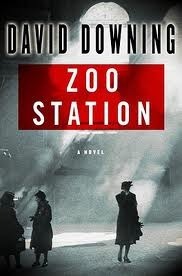What do you think?
Rate this book


Then, an acquaintance from his communist days approaches him to do some work for the Soviets. Russell is reluctant but ultimately unable to resist. He becomes involved in other dangerous activities, helping a Jewish family and an idealistic American reporter. When the British and the Nazis notice his involvement with the Soviets, Russell is dragged into the world of warring intelligence services.
304 pages, Hardcover
First published May 1, 2007

